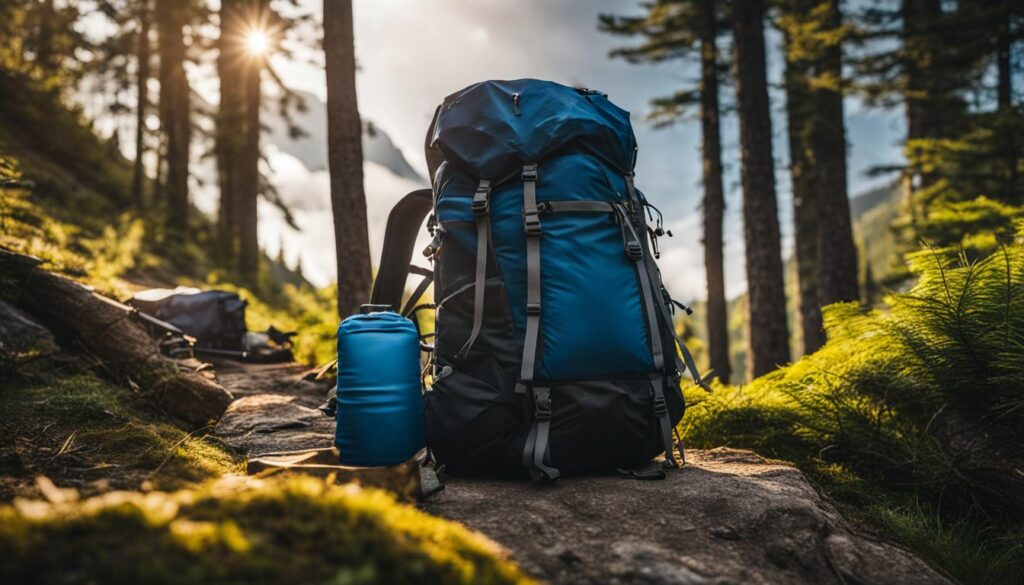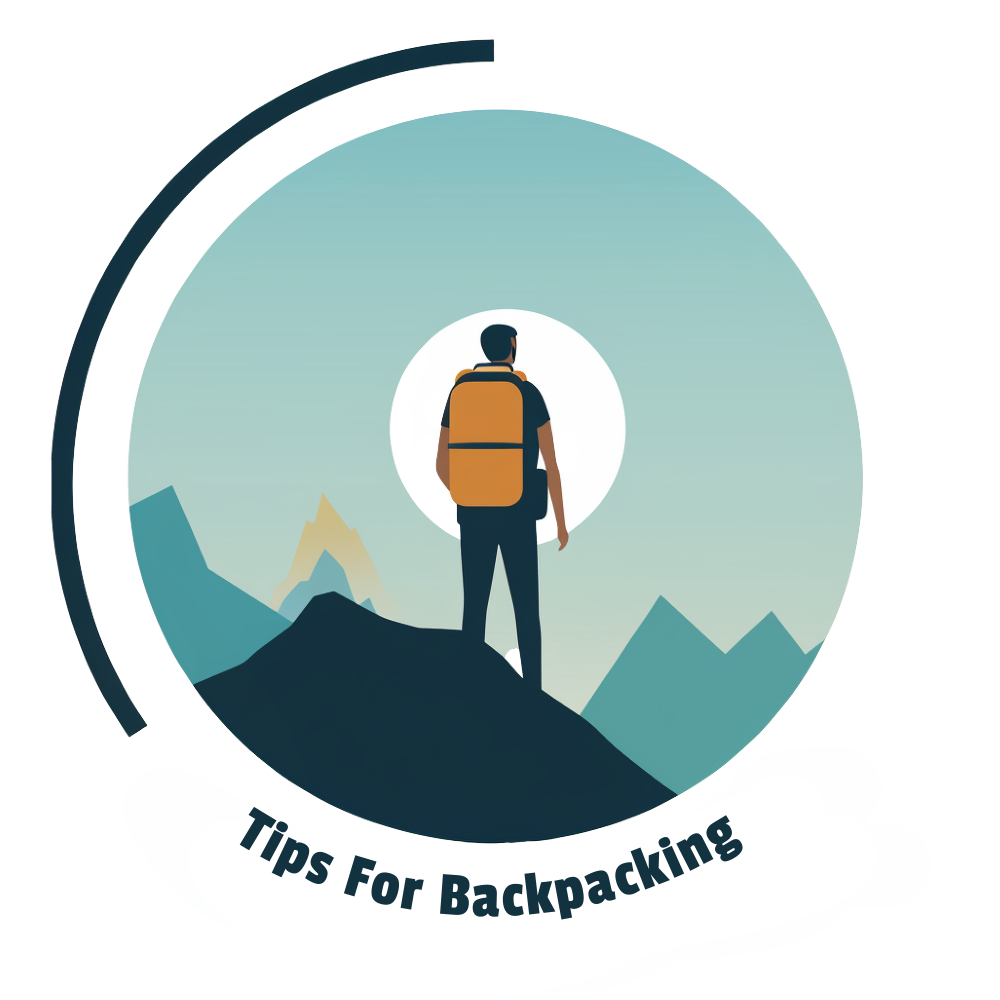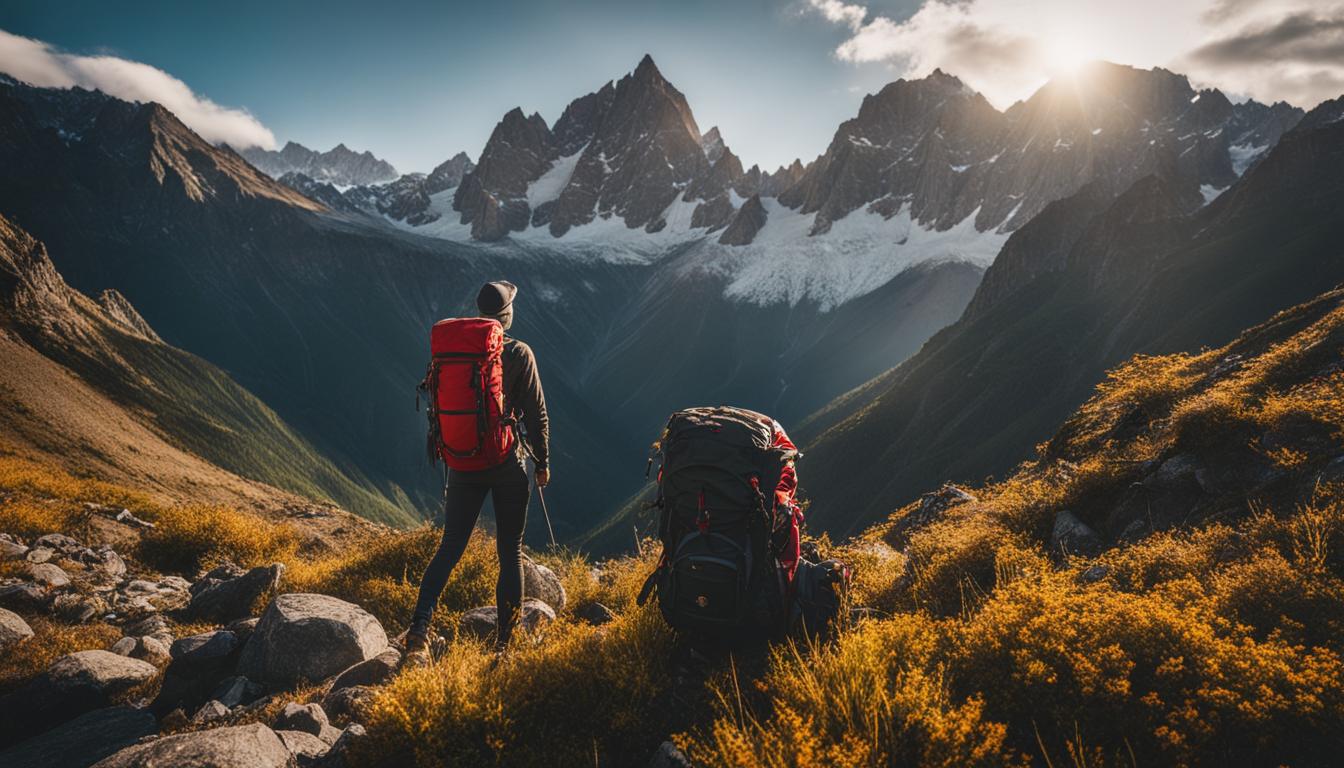Hey there! If you’re new to the world of backpacking, you’ve come to the right place. In this guide, I’ll share some essential tips and tricks to help you kickstart your backpacking adventure. Whether you’re looking for breathtaking mountain trails or serene forest paths, I’ve got you covered.
Key Takeaways:
- Choose a trail that inspires you and start with hikes near amenities.
- Plan your distance wisely, considering campsites, water access, and potential dangers.
- Gather information from experienced backpackers, rangers, or local guides.
- Invest in lightweight and compact gear essentials.
- Prioritize down jackets and sleeping bags to reduce pack weight.
Backpacking Gear Essentials for Beginners

When it comes to backpacking, having the right gear is essential for a successful and enjoyable trip. As a beginner, it’s important to focus on packing the essentials while keeping your load as light as possible. Here are some key backpacking gear items to consider:
Table: Essential Backpacking Gear Checklist
| Item | Description |
|---|---|
| Backpack | A sturdy and comfortable backpack with adjustable straps and ample storage capacity. |
| Tent | A lightweight tent that provides shelter from the elements. |
| Sleeping Bag | A compact and warm sleeping bag suitable for the expected weather conditions. |
| Sleeping Pad | An insulated pad that provides cushioning and insulation from the cold ground. |
| Water Filter or Purifier | A system for treating and purifying water from natural sources. |
| Backpacking Stove and Cookware | A lightweight stove and cookware set for preparing meals on the trail. |
| Navigational Tools | Maps, compass, and GPS for navigation and route planning. |
Remember, the key is to pack only what you need and prioritize lightweight options. If you’re just starting out, consider borrowing or renting gear to save money and test out different equipment before making a purchase. Additionally, pay attention to the weight of your food by focusing on calorie-dense meals and lightweight packaging.
To reduce pack weight, investing in down jackets and sleeping bags can make a significant difference. These items provide excellent insulation while being lightweight and highly compressible.
By focusing on these backpacking gear essentials, you’ll be well-prepared for your adventures on the trail. Remember to always research and choose gear that suits your individual needs and the specific conditions of your trip.
What are the fundamental basics of backpacking for beginners?
If you’re new to backpacking, this beginner backpacking essentials tutorial is for you. Start with a well-fitted backpack, sturdy footwear, and lightweight, quick-drying clothing. Learn how to pack efficiently, carry essential gear like a first aid kit and navigation tools, and always practice Leave No Trace principles. Happy trails!
Tips for a Successful Backpacking Trip
When it comes to backpacking, safety should always be a top priority. Here are some essential tips and tricks to ensure a successful adventure:
Start with Manageable Distances
As a beginner backpacker, it’s important to avoid common mistakes, such as overpacking and trying to cover too many miles in a day. Start with manageable distances, around 5 miles per day, and gradually increase as you gain more experience. Also, take into consideration the elevation gain of the trail to avoid unnecessary exhaustion.
Master Basic Navigational Skills
Learning how to read topographic maps and use GPS is crucial for a safe and enjoyable backpacking trip. Take the time to familiarize yourself with these skills before hitting the trails. They will help you stay on the right track and avoid getting lost.
Protect Your Food and Practice Good Hygiene
Animals can be attracted to the smell of food, so it’s important to protect your stash. Use odor-proof bags or bear cans to store your food and keep it away from your sleeping area. Additionally, practice good backpacking hygiene by washing your hands regularly, using biodegradable soap, and disposing of waste properly to minimize your impact on the environment.
Be Prepared for Emergencies
Always carry a well-equipped first aid kit and make sure you know how to use it. Accidents can happen, and being prepared can make a huge difference in an emergency situation. It’s also a good idea to inform someone about your trip plans and expected return date, just in case.
By following these backpacking safety tips and tricks, you’ll have a solid foundation to start your adventure. Remember, backpacking is not only about reaching the destination but also about enjoying the journey and embracing the sense of adventure as a beginner.

